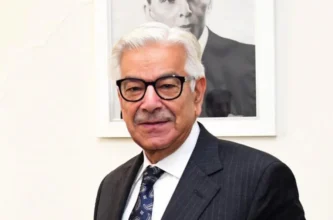Trump Imposes 19% Tariff on Indonesian Goods as EU Prepares Retaliation

Former US President Donald Trump announced a new trade agreement with Indonesia on Tuesday, confirming the imposition of a 19% flat tariff on Indonesian exports to the United States. The deal, which comes ahead of a broader tariff hike deadline set for August 1, aims to reduce the US trade deficit and reflects Trump’s broader push for reciprocal trade arrangements with multiple countries. In return, the United States will face no tariffs on its exports to Indonesia.
As part of the agreement, Indonesia has committed to purchasing $15 billion worth of American energy products, $4.5 billion in US agricultural goods, and 50 Boeing aircraft. Trump also introduced a penalty clause targeting transhipment of Chinese goods through Indonesia and emphasized that the deal provides full access for US goods to the Indonesian market. He compared the pact to a recent preliminary deal struck with Vietnam and hinted that more such agreements were on the way.
Also Read:
Indonesia, though not among the US’s top trading partners, has seen steady growth in bilateral trade, totaling just under $40 billion in 2024. US exports to Indonesia rose by 3.7% last year, while imports increased by 4.8%, contributing to a trade deficit of nearly $18 billion. Key US imports from Indonesia include palm oil, electronics, footwear, car tires, rubber, and frozen seafood.
The announcement comes as the European Union braces for potential US tariffs. Trump has threatened to impose a 30% duty on EU imports beginning August 1, which the European Commission warned could severely damage transatlantic trade. In response, Brussels has prepared a retaliatory package targeting over €72 billion ($84 billion) worth of US goods, including aircraft, vehicles, agricultural products, and various manufactured items.
Trump’s administration has also begun issuing tariff warning letters to about two dozen other countries, proposing rates from 20% to 50% on various goods, including a 50% tariff on copper. Talks with India are also underway, and Trump indicated a similar deal is taking shape to expand US market access there. His approach favors broad tariff measures over lengthy negotiations, although some in his administration, including Treasury Secretary Scott Bessent and Commerce Secretary Howard Lutnick, are pushing for more structured trade agreements.
Trump also signaled new tariffs on imported pharmaceuticals would be announced by the end of the month. These would begin at a low rate to allow companies time to shift manufacturing to the US, followed by much steeper tariffs in the coming year. While several “framework” agreements have been reached—including with the UK, Vietnam, and China—Trump has so far fallen short of his earlier pledge to secure “90 deals in 90 days.” The August 1 deadline remains a critical point for targeted nations to renegotiate or face increased duties under Trump’s expansive trade agenda.
Read all the Breaking News Live on pakistantimes.com and Get Latest English News & Updates from Pakistan Times. Follow us on Whatsapp channel for more.








